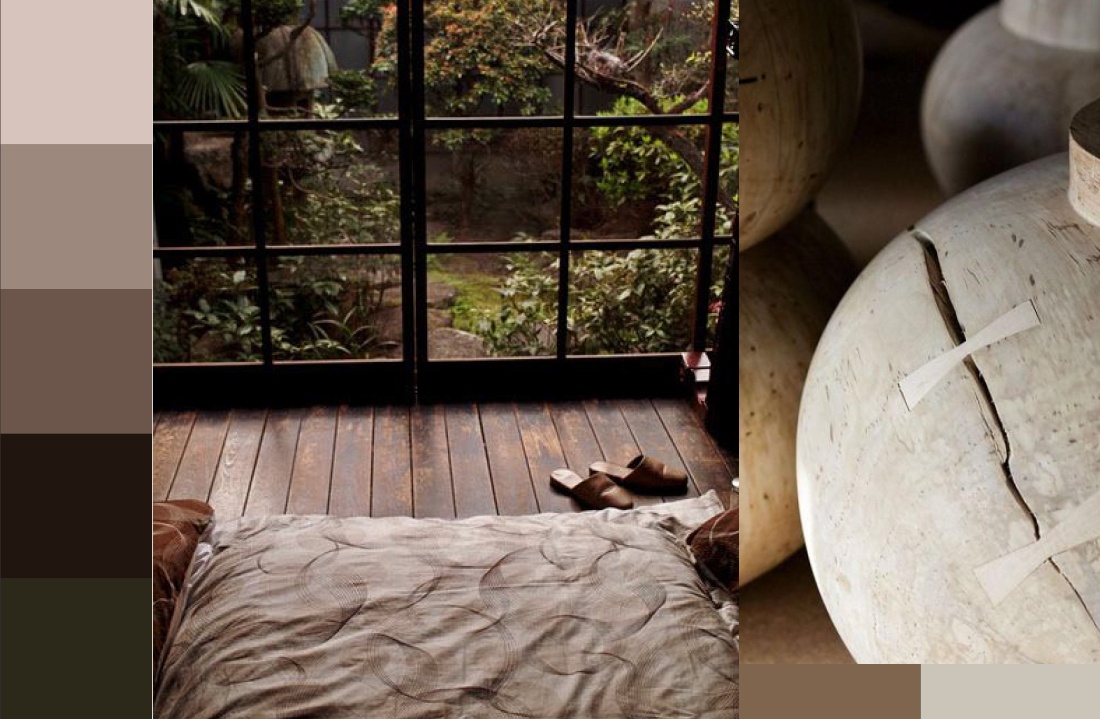Here at Culp, we compete in a fashion-driven business, and continue to differentiate ourselves by focusing on product innovation and new product introductions.
Select a swatch to view our current trends, then click through the trend categories below.
Described as "beauty in imperfection," wabi-sabi originally began in ancient China with its history rooted in Zen Buddhism. It later evolved into a predominately Japanese movement, being linked to the country’s famous tea ceremonies. The term "wabi-sabi" is not easily translated, as the practice is so rich in history that the meaning of the words has changed over the centuries. "Wabi" is said to be defined as "rustic simplicity" or "understated elegance" with a focus on a less-is-more mentality. "Sabi" is translated to "taking pleasure in the imperfect." (The Thirty)


Flawed beauty is fully embraced in the wabi-sabi philosophy, as ancient Japanese royalty saw embracing imperfection as one of the key steps to enlightenment. Embracing the “natural passage of time” is encouraged, in stark contrast to Western culture which champions all that is perfect and new while having a low regard for aging. (The Thirty)

Broadly, wabi-sabi is everything that today’s sleek, mass-produced, technology-saturated culture isn’t. It celebrates cracks and crevices and rot and all the other marks that time and weather and use leave behind. To discover wabi-sabi is to see the singular beauty in something that may first look decrepit and ugly. (Utne)

Wabi-Sabi takes a mind quiet enough to appreciate muted beauty, courage not to fear bareness, willingness to accept things as they are—without ornamentation. It depends on the ability to slow down, to shift the balance from doing to being, to appreciating rather than perfecting. (Utne)

The lifestyle calls for living modestly, accepting our own imperfection, and learning to be satisfied with what we have. It’s the polar opposite of our typically stressful, busy lives wherein we often focus on achieving perfection in all areas. (The Thirty)

Wabi-sabi reminds us that we are all transient beings on this planet – that our bodies, as well as the material world around us, are in the process of returning to dust. Nature’s cycles of growth, decay,
7209 Hwy 158 • Stokesdale, NC • 27357
Culp Home Fashions is a division of Culp Inc.